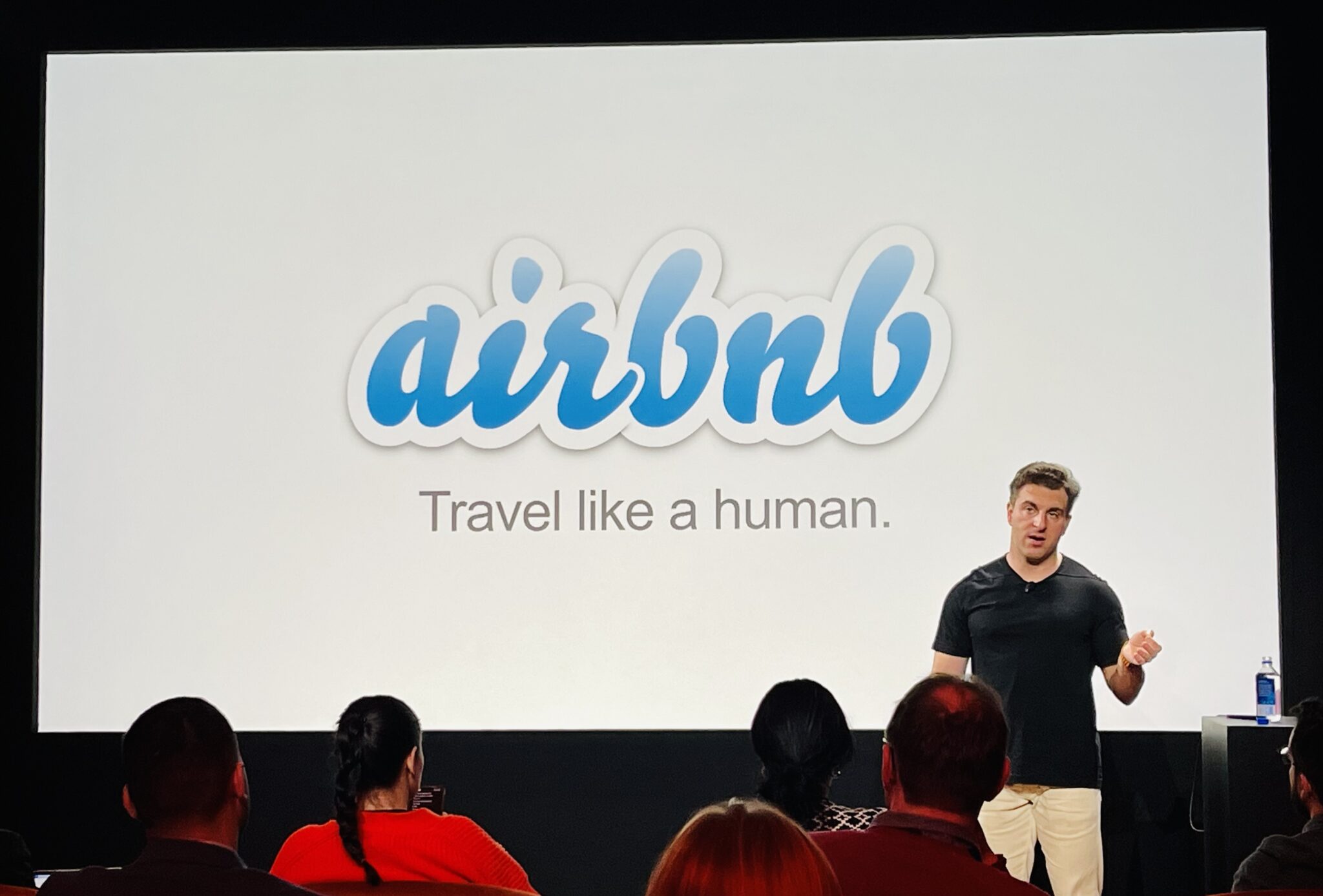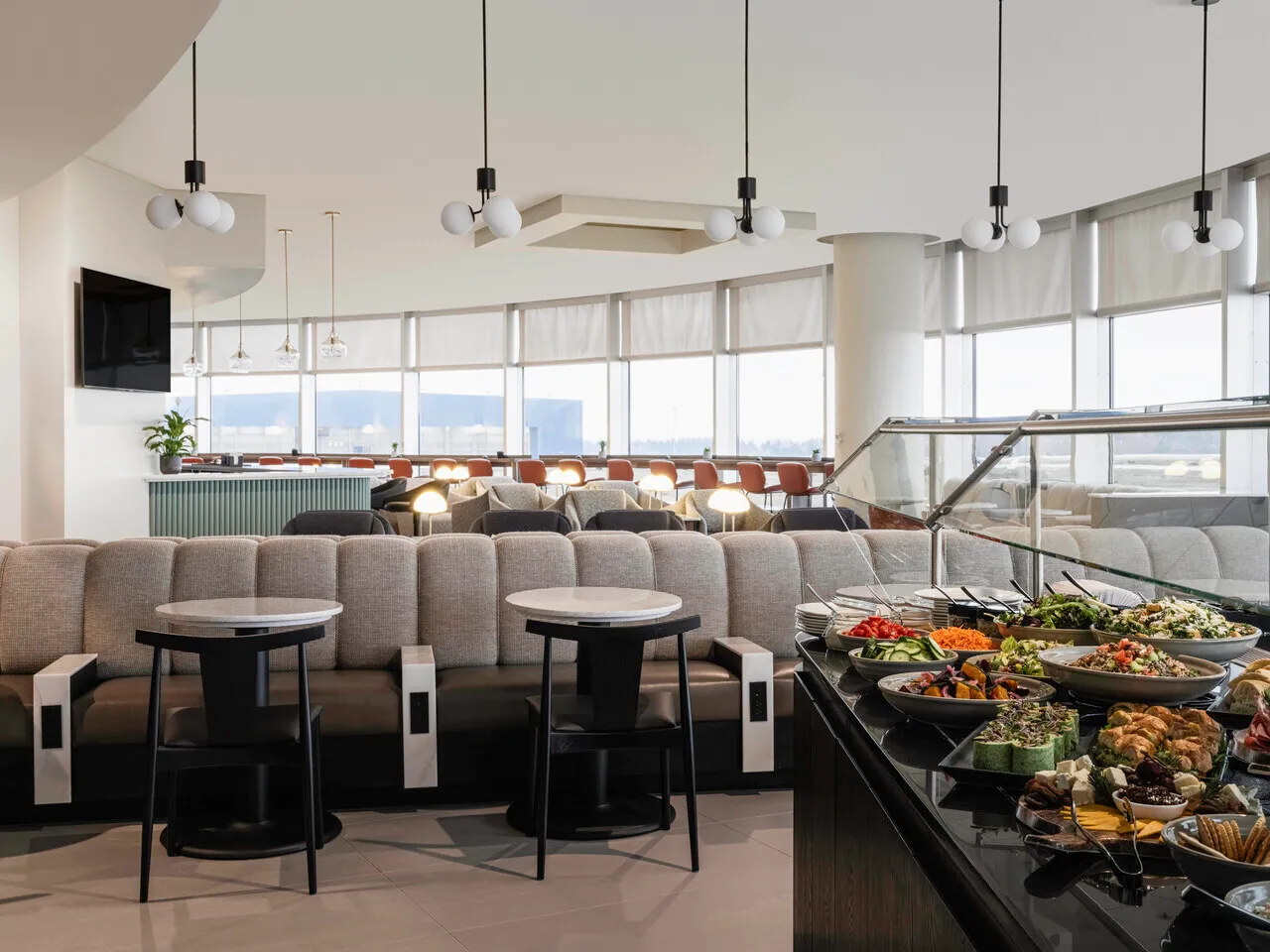Interview: Airbnb CEO On How Its Service Will Radically Change With AI, By Next Year

Skift Take
Airbnb is at the cusp of the revolution happening in artificial intelligence, not only because its roots are in the Silicon Valley tech ecosystem, but also since there is a close connection between CEO and Co-founder Brian Chesky and OpenAI Founder and CEO Sam Altman.
(Read details below in the interview).
But, it hasn't announced or launched anything yet, even as it has announced a slew of new product enhancements and launches at its annual May product update event yesterday. The official announcement for the public is today. I met Chesky yesterday at its launch event and talked to him separately about his views on what role AI will play in the next year and beyond for the company.
In this interview, Chesky discusses the company's renewed focus on design, creativity, and people. He explains how Airbnb lost sight of these core values and how the pandemic forced the company to rebuild from the ground up.
Chesky also discusses Airbnb's plans to incorporate AI into the app and make it the center of how the app runs, with some launches coming later this year but major changes coming by mid next year, with a focus on personalized recommendations and improved customer service.
Additionally, Chesky mentions upcoming updates to the Airbnb platform, including paid products and services for hosts and guests, and a potential ad product that he wants to do differently.
Finally, Chesky talks about Airbnb Experiences and how the company has had fits and starts with it, but believes the market is there and someone could build a billion-dollar company just with experiences.
The full interview, below, edited for clarity:
Rafat Ali: The launch of Airbnb Rooms and this emphasis on customer service journey and the new improvements that you went through, this could have been done five years ago. Why now?
Brian Chesky, CEO and Co-Founder, Airbnb: I think it's a big question, the biggest answer I can give you is if I think back about the two most fundamental core values about the company when we started. I think the first one was probably design and creativity. How many tech companies have two designers, one engineer? It's unheard of.
And the other one was, as you know, the founding story, it wasn't about empty homes, it was about people staying with each other. And I feel like that in 2008 until maybe 2011, that was very, very potent. And over the course of maybe the course of five to 10 years as you were covering us, I think those things got a little watered down, those two values got watered down. I think the value of design and creativity got watered down.
For example, by the time the pandemic had occurred, we were spending a billion dollars performance marketing, we were doing endless A/B experimentation, which a little bit's OK, but you never want to live in a house where someone has A/B tested everything in the house. And I felt like we didn't have really great brand marketing. We didn't doing as much holistic product vision like launches we do now. And that was the first thing.
And the second thing I started feeling was the roots of the company. Airbnb was always about people. And you came to Airbnb and other new experiences, you didn't see any people anywhere. And so this was gnawing at me up until this hike I've talked about that. I went on this hike in October 2019 with [my co-founders] Joe and Nate. And I told them I felt like I had a dream that I left the company. I'd been gone for 10 years and I came back and I don't recognize it. And they said, "Well, what are you going to do about it?" And I said, "Well, I don't know. The IPO, we're about to go public."
What I was feeling with these two things, that design and creativity wasn't at the center of the company and people were not at the center anymore. The next question is, well how did that happen? I don't know. I think you just grow and you drift a little from the original premise of everything you stood for. You hire people, you ride momentum, you ride growth. And also you follow what people ask for, and people weren't asking for [individual] rooms. They weren't asking for a community, they were asking for an entire homes. You follow what they ask for and you respond. And it's a little bit every day. And then one day you wake up and you, it's look at an old photograph and you're like, "Wow, things are really different."
I didn't know what to do. And then the pandemic occurred and all of a sudden we had to rebuild the ground up. And we really first got back that design and creativity value. We shut down performance marketing, but a lot less than Booking [Holdings] does. We spend couple hundred million dollars in performance marketing a year, and they spend billions. We have to defend our keywords, which is bullshit, but we have to do it. But now, we do these product launches. I review everything. It's really holistic, that design process and figuring our customer journey.
I think that we are fully back, design and creativity is fully back at Airbnb. It's at the soul of this company. I think design is a couple years ahead and connection, belonging, community is a little behind.
In the pandemic, when I did the layoff letter, you might remember I said we're getting back to the roots of Airbnb. And the real roots is this, that's the real roots.
But the problem is for three years we couldn't do much because people didn't want to be with each other in their homes. I've been basically waiting. And we were going to do launch of Airbnb Rooms last year, but then Omicron came and it just seemed like it was a bad time. If I could do this over again, I would've held onto those values. I would've never let go of them. And just sometimes you learn a lesson, you grow up and you realize you can't take things for granted, so that's why.
And I also just say that's a clue of things to come. You know our competitors better than I do. They're basically marketing companies. They're arbitrage companies. I want us to be an innovation company. My idols were Walt Disney, Steve Jobs. I'm not saying I'm like them, but I want us to launch new things, real products, real innovation. Yes, we do a little bit of performance marketing, we do A/B testing a little bit. We don't live by AB testing. We don't live by arbitrage.
I wanted to build great products that people love. And I want the brand to be about people again. Airbnb Rooms is a small thing, it's not a giant thing, it's a seed. But we're going to launch a whole bunch of new things in the next couple years.
Rafat: One thing I was expecting in this round of launches was some more AI services. Sam Altman, the CEO and founder of OpenAI [parent company of ChatGPT] was an investor in your company. You are friends with him. I would've expected something to come out of Airbnb quickly.
Chesky: I'm very close him. I talk to him every day ... But... I have a slightly different perspective. I don't think we're looking to rush out something in AI. One of the things I loved about Apple was they were never the first, they weren't the first smartphone, they weren't the first music player, they weren't the first tablet. But when they put something out, there was nothing after it.
And just to give you a little bit of backstory on AI, I've known Sam because he was in YCombinator in 2006, before I went into the program, he was one of my first mentors when I came to Silicon Valley. He was investor. He ran YCombinator starting 2014. And then over the years I talked to him but didn't keep in touch as much. And then last year with Dall-E before ChatGPT -- and I had no idea ChatGPT was coming out -- that spoke to me because I'm like, "Oh, that's creative tools."
And so I talked to him. We went to Sun Valley [media and tech CEOs retreat] together. And I did the opening talk of Sun Valley, I talked about how I run this company, how I do these product launches. And he was totally enamored by it. He said, "I want to run my company like that." And I said, "OK, let me tell you how I do it." And then I saw him put out Dall-E, and I told him, "My God, if you're putting these tools, this could be great for artists, it can also replace artists. Let me help you think about it. I start working with them on it.
Meanwhile, something much bigger is brewing I didn't even know about, which was ChatGPT. And so suddenly the whole company and the whole world just changes [after it launches]. Then I said to him, "Well, let's do something together." We got really close to OpenAI. We actually helped them with their plugins. When they built those plugins, we were originally the first partner. I even sent my engineering team to OpenAI to help them.
But then I saw the integration. And I said, "You know what, Sam? We're going to sit out the integration. Because we built the OpenAI plugin where you can search everything but it's not the right interface."
Rafat: It's not visual yet.
Chesky: It's not yet. Then I also told him, I said, "You know what? I think what I'd rather do is instead of building an interface layer on top of ChatGPT, why don't we just bring GPT4 into our app? That's what we did, and we're doing that now.
Rafat: That's not launched yet. So the conversational search interface that you're thinking?
Chesky: Yeah, yeah. That's coming. Basically the short answer is next May you're going to see a whole new Airbnb. AI's going to be at the center of it. Some things will come out in November, we do May and November product launched. We'll do small things in November. But May, we're basically rebuilding the entire app with AI at the center.
There's a bunch of things we're looking at on the tactical side. Customer service, obviously, eventually we're going to have more AI-augmented customer service. And I think that people still want a person but a person that could be augmented by AI. I'll give you an example. We have 72 user policies: we have a discrimination policy, we have a cancellation policy, we have a rebooking policy. Some of them are as long as 100 pages because it's for all the different countries and different scenarios. And imagine you're a customer service agent. You've been trained for three months. And now in three minutes people need a resolution. You're like, "Well, which policy?" You're reading it.
AI can do that so much better and help massively in customer service. You might not notice as a customer. Hopefully it's going to make you just think, "Oh my God, their customer service is amazing." You don't know it's AI so you shouldn't see that. That's tactical. That's coming out this fall, and we'll roll out over the next 12 months. And that will, I think, significantly make both the agents more productive and of higher quality.
The next thing is we're working on the tactical things: reviews summaries. If the listings had too much reviews, it's a good way to summarize. If you want to list your home on Airbnb, photo to text, I can take a photo, and then all the amenities get to be filled out. Because we already have the technology where I know what lamp that is.
Developer productivity: we think of developers this year can be probably 20%-30% more productive and probably twice as productive in a year. And that's low key stuff. The real vision is what if there Airbnb app could be almost like the ultimate host, the ultimate concierge. And think about it as there's like three layers. You have the big foundational base [LLM] models. We're not going to do that. We might use some GPT4, but we'll probably also use some smaller models. I think the base models as a highway, that's like the infrastructure companies. We're not going to build highways, we're not doing large models, we're not doing infrastructure. We're going to design the cars on top of the highway. We're going to design the fine tuning of these models based on our customer data.
I want to build the most personalized layer of AI. And then we want to design the AI interface. Because I think we're not the best foundational technology company, but we're one of the best interfaces. We're one of the best application, design, product interface, application engineering company. That's where we really specialize. And so that's hopefully what you're going to see next year. But I really want to wait to ship something, do the Apple approach, don't be first, just be best.
Rafat: And is the focus very much in the app? So app becomes the center versus the web? Because app is where the conversational AI happens.
Chesky: People are still using the website more than I ever thought. It's completely crazy. But yeah, I think the app is so much more real time. It's so much more conversational. Obviously there's native, there's notifications. I think the app is always the superior use. But so much of our business is still desktop. It's still shocking because how immersive it is. Big dollar amount. It's a lot of planning.
Rafat: One of the things you said recently at a conference was your idea of a two-sided marketplace of paid products and services for hosts and guests. Do you think that will happen?
Chesky: We're working on that. Without being too specific, we've got some big updates coming in November. Each thing is going to get bigger and bigger. November will be pretty big. A year from now will be huge, it'll be really big. And then the following November… Yeah, we're working on all this stuff.
And there's a lot of opportunities around services for host especially. I should send you this copy of this thing we created, this map of the Airbnb Economy. It's almost like a blueprint for the economy. We mapped out all the companies that are built on Airbnb.
There's thousands, but we found 300 important companies that do millions of dollars a year of business. And they do cleaning, they do photography, they do key exchange, they do pricing, they do co-hosting, messaging. They provide data, they go down the list.
There's something to do with that ecosystem where both we can connect you to those services, but also there's stuff we can do with our own services as well.
Also I get endlessly asked about paid placement [within Airbnb search results and listings]. I think it's a matter of time. I don't want to rush an ad product out. Ads can be drugs. You got to be very careful, right? It's a great business, but you got to be careful that it doesn't become a drug and it doesn't like performance marketing really degrade the quality of the company and the culture and the product. And so I've been very careful and very slow. And if we do something like that, I'd want to do it differently. I'd want to not just do our version of it. I'd want to do something no one's ever seen before and much more personalized. And that's where we're taking our time on it.
Rafat: Last question: Can you clear the air on Airbnb Experiences. I know so you love Experiences. You want it to succeed. It seemed like you're having fits and starts with it.
Chesky: We've had a lot of fits and starts. Let me say a couple things. I think somebody could build a business the size of Airbnb just with experiences. We haven't figured it out, maybe we will. I think somebody could build a hundred billion company just with experiences. I think the market's there, but it's all about timing. I think Marc Andreessen - he's one of our investors -- he said, "There's no bad ideas, just ideas that are too early."
I think in hindsight with Experiences, we were a little bit early. The execution wasn't quite right. And it wasn't a failure, we do millions of tickets a year, but it didn't ever turn into the thing I wanted it to become. And then the pandemic occurred, and then the whole thing just got slowed down. We're pausing new experiences because we're taking a step back and figuring out what to do.
Rafat: So it's not going away?
Chesky: That's not going away. We want to do something new in that space. I remain convinced that there's a business opportunity of the size of our core business in that space. Whether we can pull it off, whether now is the right time, whether we're the ones that do it, all those are questions. But to me, there's no question that there's hundreds of billions of dollars of value in people wanting things to do.
Rafat: Would you acquire?
Chesky: We probably should never say never. But if we're going to do something, I want to do something that no one's ever done before. But you know what? Stay tuned.





